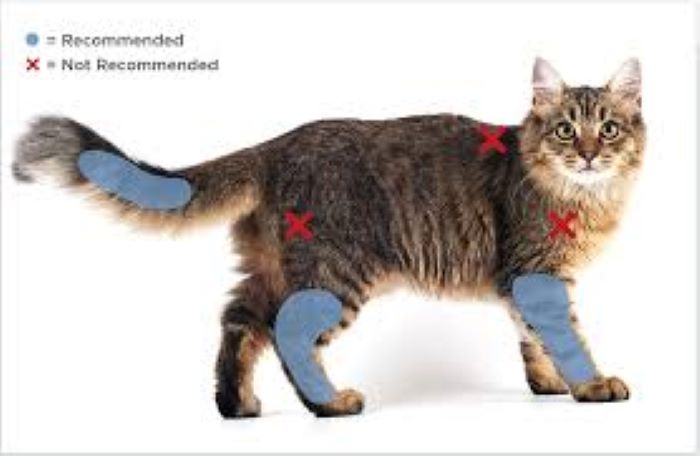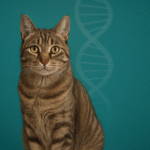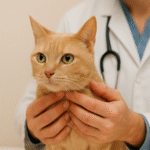The feline parvovirus is found worldwide, affecting cats in much the same way as parvovirus affects their canine counterparts. The feline parvovirus causes severe gastroenteritis in affected cats, and can be fatal unless treated with haste. This highly contagious disease primarily affects unvaccinated cats less than a year old.
Spread by oral contact with infective feces, urine, or saliva, the feline parvovirus strikes the intestines with a fury, causing fever, depression, vomiting, diarrhea, abdominal pain, and dehydration. The disease can be complicated even further as bacteria within the gut proliferate as a result of the virus and release toxins into the bloodstream.
The virus itself can even spread to the bone marrow and interfere with the body’s ability to mount an effective immune response to the disease. If a queen becomes infected with the parvovirus while pregnant, abortions or weak kittens could result. In many instances, these newborn kittens suffer from underdeveloped brains, causing permanent incoordination.
Diagnosis of a parvovirus infection in cats is based on history, clinical signs, and a marked reduction in the circulating number of white blood cells.
Treatment is supportive, involving antivomiting drugs and intravenous fluids to correct and prevent further dehydration, and antibiotics to keep the secondary bacterial infections at bay. Recovery will depend on how rapidly this supportive treatment is instituted.
Feline parvovirus can be prevented through vaccination. Queens should be current on vaccinations prior to becoming pregnant to protect unborn offspring from the virus. Finally, this virus is relatively stable in the environment, so it is a good idea to wait 3 to 4 weeks before introducing any new kittens or cats into a house where the parvovirus has been.





